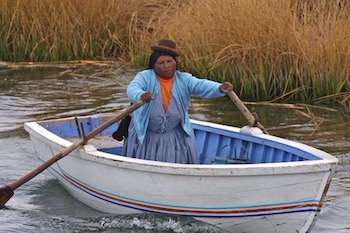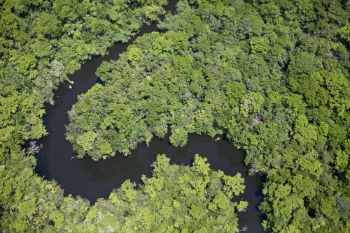Our Work
The Rapid Rescue for Conservation Crises (R2C2) facility is managed by the Critical Ecosystem Partnership Fund (CEPF) and funded by the European Union (EU), via l’Agence Française de Développement (AFD). The facility will address immediate conservation crises resulting from natural causes such as wildfires, droughts, volcanic eruptions, earthquakes, cyclones and mass strandings of animals and plants requiring an urgent response. It will also address human-induced crises, such as security threats to environmental activists or national park/protected areas rangers or managers; sudden spikes in poaching or illegal, unreported and unregulated fishing; accidental or intentional pollution events; and acts of terrorism.
The facility will be accessible to a broad range of civil society organizations (CSOs), including but not limited to international and local NGOs, academic institutions, community-based organizations, and private companies, on a not-for-profit basis.
Eligibility Criteria
- Project is in an EU development aid country.
- **During the pilot year of the fund (2025), CEPF will only accept applications for projects in biodiversity hotspots where it has current or past investments.
- Project is in a country that is not excluded by U.S. law.
- Project responds to a conservation crisis that is
- immediate, meaning that it must be presently occurring, not merely anticipated and
- urgent, meaning that it can only be resolved if conservation funding is provided with a time lag of no longer than three months.
- Grant applicant is authorized under relevant national laws to receive charitable contributions.
- Grant applicant must be legally registered and have a bank account in the entity’s name that can receive payments by wire transfer in foreign currency.
- Government-owned enterprises or institutions are eligible only if they can establish
- that the enterprise or institution has a legal personality independent of any government agency or actor,
- that the enterprise or institution has the authority to apply for and receive private funds in its own name and capacity, and
- that the enterprise or institution may not assert a claim of sovereign immunity.
- Grant will not be used for the purchase of land, physical resettlement of people, or activities that have the potential to cause adverse impacts to critical habitat.
- Grant will not be used for any other activities prohibited by CEPF’s environmental and social safeguard policies.
Types of Grants
The R2C2 facility will make two types of grants: “small grants” of up to US$50,000 and “large grants” of more than US$50,000. Both types of grants can only be made to pre-identified civil society organizations (CSOs) that have undergone screening and due diligence processes adjusted to the type of applicant and amount. Current and former CEPF grantees who are in good standing with the fund will be eligible to apply for small grants. Large grants will only be accessible to pre-identified implementing partners that have received training in the processes and policies of the facility.
How to Apply
There will be two pathways for approaching the R2C2 facility. First, any eligible applicant will be able to submit an unsolicited Letter of Inquiry (LOI) (template available below), which can be submitted by email or via CEPF’s online grants management platform. Second, AFD and EU staff based in development aid countries can bring conservation crises to the attention of the facility. In such cases, the CEPF Secretariat will solicit an application from an implementing partner present in that country. Whether solicited or unsolicited, the initial approach will be made by a simplified LOI. LOIs will be accepted in any language, with translation software being used in the case of applications not being received in one of the official CEPF languages: English, French, Spanish and Portuguese.
Important notice: By submitting an application to R2C2, you acknowledge that you have read, understood, and agreed to abide by our facility's General Terms and Conditions, which are available below.
Timeline
Applications will undergo rapid but thorough technical review.
- Within three business days of LOI submission:
- a response will be sent to the applicant acknowledging receipt
- an eligibility screening will be done
- a response will be sent to the applicant in case the LOI is deemed not eligible
- Eligible LOIs will then be reviewed internally by one or more members of the CEPF Secretariat, drawing on their extensive experience of conservation grantmaking, as well as by at least one external reviewer familiar with the local context where the conservation crisis is taking place.
- An initial decision will be made on each eligible LOI within seven days.
Contact
Should you have any questions, don’t hesitate to reach out at R2C2@cepf.net
Documents
- R2C2 Operations Manual (450 KB - PDF)
- Final Completion and Impact Report Form for R2C2 (75 KB - Word)
- Fixed Amount Award Letter of Inquiry Form (244 KB - Word)
- Fixed Amount Award Proposal Form (268 KB - Word)





